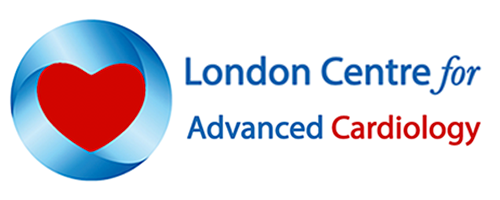Cholesterol itself isn’t bad. In fact, cholesterol is just one of the many substances created and used by our bodies to keep us healthy. It is a fatty substance known as lipid. Some of the cholesterol we need is pro- duced naturally mainly by the liver (and can be affected by your family health history), while some of it comes from the food we eat. Choles- terol is only found in animal products. There are two types of cholester- ol: “good” and “bad.” It’s important to understand the difference, and to know the levels of “good” and “bad” cholesterol in your blood. Too much of one type — or not enough of another — can put you at risk for coronary heart disease, heart attack or stroke.
A cholesterol screening measures your level of HDL and LDL. HDL is the “good” cholesterol which helps keep the LDL (bad) cholesterol from getting lodged into your artery walls. A healthy level of HDL may also protect against heart attack and stroke, while low levels of HDL (less than 40 mg/dL for men and less than 50 mg/dL for women) have been shown to increase the risk of heart disease.
When should I test my cholesterol levels?
Your GP may recommend that you have your blood cholesterol levels tested if you:
- Have been diagnosed with coronary heart disease, stroke or mini-stroke (TIA) or peripheral arterial disease (PAD);
- Have a family history of early cardiovascular disease;
- Have a close family member with a cholesterol-related condition;
- Are overweight, have high blood pressure, diabetes or a health condition that can increase
Why is it important to keep control of cholesterol level in the body?
High cholesterol is one of the major controllable risk factors for coronary heart disease, heart attack and stroke. As your blood cholesterol rises, so does your risk of coronary heart disease. If you have other risk factors (such as high blood pressure or diabetes) as well as high cholesterol, this risk in-creases even more. The more risk factors you have, the greater your chance of developing coronary heart disease. Also, the greater the level of each risk factor, the more that factor affects your overall risk. Your cholesterol level can be affected by your age, gender, family health history and diet.
What causes High Cholesterol?
LIFESTYLE CAUSES
Nutrition – although some foods contain cholesterol, such as eggs, kidneys and some sea-foods, dietary cholesterol does not have much of an impact in human blood cholesterol levels. However, saturated fats do! Foods high in saturated fats include red meat, some pies, sausages, hard cheese, pastry, cakes, most biscuits, and cream (and many more).
Sedentary lifestyle – people who do not exercise and spend most of their time sitting/lying down have significantly higher levels of LDL (bad cholesterol) and lower levels of HDL (good cholesterol). Increased physical activity has a positive impact on your cholesterol levels>
Bodyweight – people who are overweight/obese are much more likely to have higher LDL levels and lower HDL levels, compared to people who are of normal weight.
Smoking – this can have quite a considerable effect on LDL levels.
Alcohol – people who consume too much alcohol regularly, generally have much higher levels of LDL and much lower levels of HDL, compared to people who abstain or those who drink in moderation.
How to increase your levels of good cholesterol (HDL) and keep bad cholesterol (LDL) to acceptable levels
- Regular physical activity can help your body produce more HDLs.
- Reducing trans fats and eating a balanced, nutritious diet is another way to increase HDL.If these measures are not enough to increase your HDL to goal, your healthcare practitioner may pre- scribe a medication specifically to increase your HDLs.
LDL cholesterol is produced naturally by the body, but many people inherit genes from their mother, father or even grandparents that cause them to make too much. You can control the lev-els of LDL in the blood by reducing the intake of saturated fat, trans fats and dietary cholesterol. If high blood cho- lesterol runs in your family, lifestyle modifications may not be enough to help lower your LDL blood cholesterol. Everyone is different, so it is important
Recommendations
A good way to reduce Cholesterol levels is to consume more fiber and to lose weight. Therefore a well balanced diet is crucial to maintain a healthy heart.
Do you have any specific concerns? Call us now on 0207 580 3145

